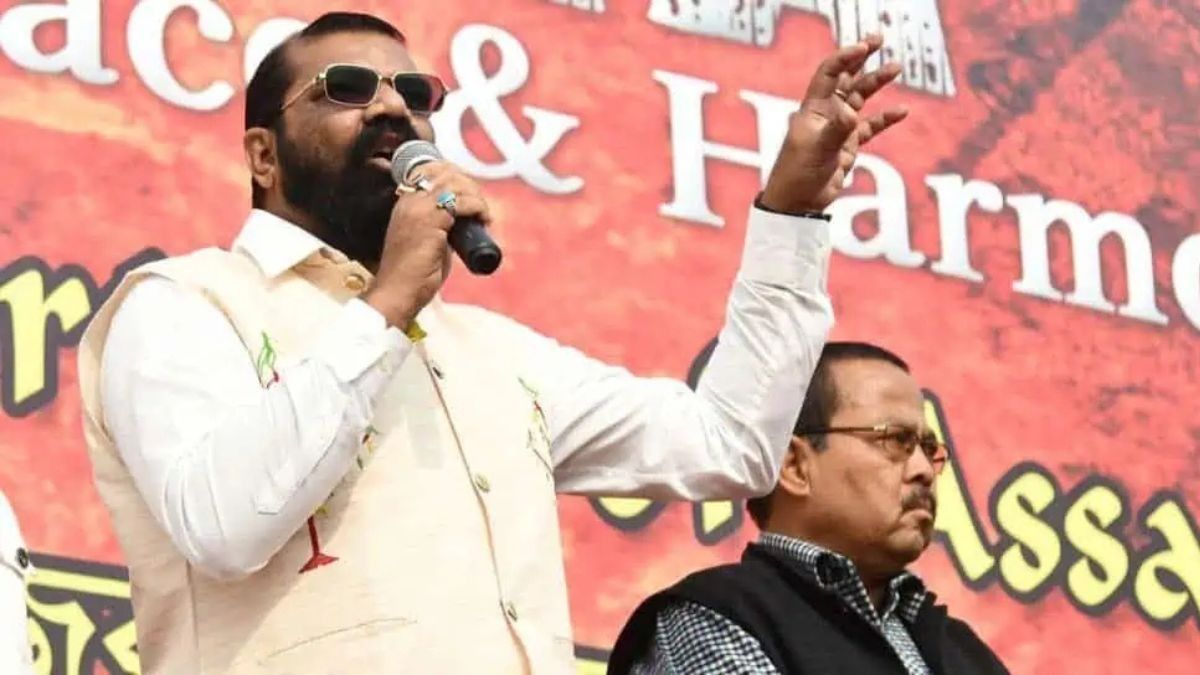lucky calico online casino login philippines
 e-boss antipolo
Vlad Yatsenko, co-founder and CTO of Revolut, has sounded the alarm on the UK's increasing brain drain, pointing to high taxes, the cost-of-living crisis, and better opportunities abroad as key reasons why young professionals are leaving. Southern Europe, with its tax-friendly policies and warmer climates, has become a beacon for British expats seeking better lifestyles. The trend of British emigration has seen steady growth, with over 532,000 Brits leaving the country in 2023, according to the British Expat Report 2024 . The report highlights that 45% of prospective expats are motivated by the desire for an improved quality of life, while 39% cite the cost-of-living crisis as a key driver. For younger Brits aged 25 to 34, 38% are considering leaving within the next five years, while 11% are actively planning their departure. France, Spain, and Portugal rank as the most popular destinations for Brits, with Spain topping the list for its affordability and proximity to the UK. Southern Europe's attractive combination of lifestyle and tax incentives has led to a noticeable shift, as highlighted in The Telegraph . These findings align with Yatsenko's observations about a growing preference among young people to move abroad for financial and lifestyle benefits. Italy and Portugal have successfully leveraged tax breaks and incentives to attract foreign talent. Italy, which suffered a significant brain drain post-2008, has seen a resurgence, with Dealroom data showing its second-best year for early-stage technology funding in 2024. Lisbon, meanwhile, is emerging as a European tech hub, thanks to its vibrant start-up culture and appealing environment for remote workers. Speaking to The Telegraph, Yatsenko noted that "Southern Europe is now competing with London for young professionals." He pointed out that lower taxes and a higher quality of life in countries like Portugal and Italy are making them increasingly attractive to skilled workers who might have traditionally built their careers in the UK. The UK government's high-tax policies have drawn criticism from multiple industries. As reported by Sky News , Airports UK recently warned that rising business rates could force smaller airports to close, increasing costs for travellers and reducing investment in infrastructure. Similarly, Order-Order noted that high inheritance taxes have sparked protests among farmers, who fear losing their family-run farms to large corporations. Yatsenko's concerns echo a wider sentiment among business leaders who argue that the UK risks stifling innovation and growth. The Revolut co-founder emphasised that countries actively creating environments to attract talent are outperforming Britain in retaining skilled workers. The British Expat Report 2024 further reveals that weather is a significant motivator for emigration, with 37% of Brits citing it as a factor in their decision. Meanwhile, safety concerns and missing family are listed as top worries, particularly for women. Despite this, Spain remains a top destination for Brits seeking both affordability and proximity to home, while Switzerland ranks highest for overall quality of life due to its low crime rates and excellent healthcare. As younger professionals increasingly consider relocating, industries like IT (48%), healthcare (30%), and education (22%) are seeing higher interest in international opportunities. Manchester leads as the UK city with the highest proportion of residents contemplating emigration, with 35% considering a move within the next five years. The shift of young Brits toward Southern Europe reflects a broader desire for better opportunities, lower taxes, and a superior quality of life. If the UK is to compete in retaining its talent, it must re-evaluate its policies to create an environment that meets the aspirations of its workforce and restores its appeal as a global hub for innovation and growth.Dutton promises teen ban won’t mean people need passports to log on
e-boss antipolo
Vlad Yatsenko, co-founder and CTO of Revolut, has sounded the alarm on the UK's increasing brain drain, pointing to high taxes, the cost-of-living crisis, and better opportunities abroad as key reasons why young professionals are leaving. Southern Europe, with its tax-friendly policies and warmer climates, has become a beacon for British expats seeking better lifestyles. The trend of British emigration has seen steady growth, with over 532,000 Brits leaving the country in 2023, according to the British Expat Report 2024 . The report highlights that 45% of prospective expats are motivated by the desire for an improved quality of life, while 39% cite the cost-of-living crisis as a key driver. For younger Brits aged 25 to 34, 38% are considering leaving within the next five years, while 11% are actively planning their departure. France, Spain, and Portugal rank as the most popular destinations for Brits, with Spain topping the list for its affordability and proximity to the UK. Southern Europe's attractive combination of lifestyle and tax incentives has led to a noticeable shift, as highlighted in The Telegraph . These findings align with Yatsenko's observations about a growing preference among young people to move abroad for financial and lifestyle benefits. Italy and Portugal have successfully leveraged tax breaks and incentives to attract foreign talent. Italy, which suffered a significant brain drain post-2008, has seen a resurgence, with Dealroom data showing its second-best year for early-stage technology funding in 2024. Lisbon, meanwhile, is emerging as a European tech hub, thanks to its vibrant start-up culture and appealing environment for remote workers. Speaking to The Telegraph, Yatsenko noted that "Southern Europe is now competing with London for young professionals." He pointed out that lower taxes and a higher quality of life in countries like Portugal and Italy are making them increasingly attractive to skilled workers who might have traditionally built their careers in the UK. The UK government's high-tax policies have drawn criticism from multiple industries. As reported by Sky News , Airports UK recently warned that rising business rates could force smaller airports to close, increasing costs for travellers and reducing investment in infrastructure. Similarly, Order-Order noted that high inheritance taxes have sparked protests among farmers, who fear losing their family-run farms to large corporations. Yatsenko's concerns echo a wider sentiment among business leaders who argue that the UK risks stifling innovation and growth. The Revolut co-founder emphasised that countries actively creating environments to attract talent are outperforming Britain in retaining skilled workers. The British Expat Report 2024 further reveals that weather is a significant motivator for emigration, with 37% of Brits citing it as a factor in their decision. Meanwhile, safety concerns and missing family are listed as top worries, particularly for women. Despite this, Spain remains a top destination for Brits seeking both affordability and proximity to home, while Switzerland ranks highest for overall quality of life due to its low crime rates and excellent healthcare. As younger professionals increasingly consider relocating, industries like IT (48%), healthcare (30%), and education (22%) are seeing higher interest in international opportunities. Manchester leads as the UK city with the highest proportion of residents contemplating emigration, with 35% considering a move within the next five years. The shift of young Brits toward Southern Europe reflects a broader desire for better opportunities, lower taxes, and a superior quality of life. If the UK is to compete in retaining its talent, it must re-evaluate its policies to create an environment that meets the aspirations of its workforce and restores its appeal as a global hub for innovation and growth.Dutton promises teen ban won’t mean people need passports to log on
Prospera Financial Services Inc Sells 797 Shares of ARK Innovation ETF (NYSEARCA:ARKK)
As science continues its evolution, discoveries and technologies can act like a master key that open doors leading to novel advancements. Artificial intelligence is one such key, making innovations possible by solving complex problems, automating tasks and enabling research that would have been impossible, or very time-consuming, without it. Mohammad Hosseini But do we want to do research on all topics, and shall we try the AI master key on every door? To explore this question, let’s consider the use of AI by genomics experts as an example. In recent years, genomics experts have added unbelievable depth to what we know about the world and ourselves. For example, genetics researchers have revealed facts about when certain animals and plants were domesticated. In another example, researchers used DNA from 30,000-year-old permafrost to create fertile samples of a plant called narrow-leafed campion. Importantly, genetic engineering has facilitated extraordinary advances in the treatment of complicated conditions, such as sickle-cell anemia. Thanks to AI, we are witnessing a dramatic increase in the pace and scalability of genomic exploration. But given the risks and possible consequences of AI use in science, should we rush headlong into using AI in all kinds of projects? One relevant example is research on Neanderthals, our closest relatives, who lived about 40,000 years ago. Neanderthals have been studied for several years now through genetic investigation of their fossils and their DNA. Genetic engineering can potentially use ancient DNA and genome editing methods to re-create a Neanderthal or aspects of a Neanderthal’s genetics and physiology. To do this, scientists could start by figuring out the DNA sequence of a Neanderthal by comparing it with the DNA of modern humans, because they are closely related. Then, scientists could use the gene-editing tool known as CRISPR to swap out parts of human DNA with Neanderthal DNA. This process would require a lot of trial and error and might not succeed soon. But based on what we know about genetics, if something is possible, AI can help make it happen faster, cheaper and with less effort. Scientists are excited about these developments because they could facilitate new discoveries and open up many research opportunities in genetic research. With or without AI, research on Neanderthals will proceed. But the extraordinary power of AI could give the final push to these discoveries and facilitate this kind of resurrection. At that point, the scientific community must develop norms and guidelines about how to treat these resurrected beings with dispositions very similar to humans. We would need to carefully consider their rights and well-being almost in the same way as when humans are involved and not as research subjects or artifacts of scientific curiosity. These ethical issues are discussed in more detail in a new paper published in the journal Nature Machine Intelligence. A more holistic question to consider is: Should we prioritize the use of resource-intensive AI, researchers’ time and public funds to resurrect extinct beings? Or should we invest these resources into conserving species that are critically endangered today to prevent biodiversity from more degradation? Hosseini is an assistant professor in the Department of Preventive Medicine at Northwestern University’s Feinberg School of Medicine. He wrote this for The Chicago Tribune . Get opinion pieces, letters and editorials sent directly to your inbox weekly!
Former Prime Minister Manmohan Singh died on Thursday, hours after being hospitalised at AIIMS, Delhi. Political leaders reflected upon the two-time Prime Minister's legacy and said his contributions to the country will be always be remembered. Taking to X (formerly known as Twitter), PM Modi shared photos with Singh and wrote: "India mourns the loss of one of its most distinguished leaders, Dr. Manmohan Singh Ji. Rising from humble origins, he rose to become a respected economist. He served in various government positions as well, including as Finance Minister, leaving a strong imprint on our economic policy over the years. His interventions in Parliament were also insightful. As our Prime Minister, he made extensive efforts to improve people’s lives." Also Read | Manmohan Singh passes away: From scholar to statesman, a lookback at his role shaping modern India BJP chief JP Nadda called Manmohan Singh a 'visionary statesman' and said his 'legacy will continue to inspire generations in their pursuit of nation-building'. Here's what he wrote: Former Haryana Chief Minister and Congress leader Bhupender Singh Hooda remembered Manmohan Singh as a "great economist of the world" and said he took India forward through his work. Also Read | Former Prime Minister and senior Congress leader Manmohan Singh passes away at 92 Shiromani Akali Dal also took to social media and said, "Deeply saddened by the passing of Dr. Manmohan Singh, a visionary economist, statesman, and former Prime Minister of India. The former Indian Prime Minister was the first Sikh to hold this office, and also served as the Finance Minister of the country. His contributions to India’s economic progress will always be remembered."
Should AI be used to resurrect extinct species like the Neanderthal? | Mohammad HosseiniIndia’s Growth Over Last Decade Propelled by Advancement in Science, Tech: Jitendra SinghAmerican Airlines Group Inc. stock underperforms Thursday when compared to competitors




